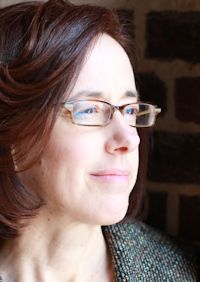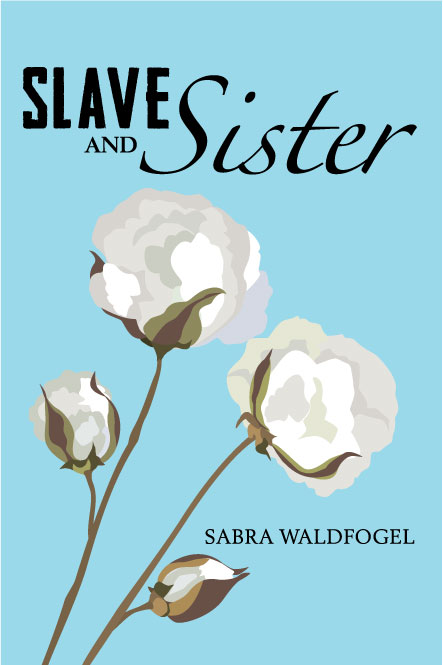Publication Date: March 11, 2014 | Publisher: Sabra Waldfogel | Formats: eBook, Paperback | 379p
Genre: Historical Fiction
Adelaide Mannheim and her slave Rachel share a shameful secret. Adelaide’s father, a Jewish planter in Cass County, Georgia, is Rachel’s father, too. Adelaide marries neighboring planter Henry Kaltenbach, a Jew deeply troubled by slavery, and watches with a wary eye as her husband treats all of his slaves—including Rachel—with kindness. As the country’s conflict over slavery looms ever larger, Henry and Rachel fall in love, and as the United States is rent by the Civil War, the lives of mistress and slave are torn apart.
When the war brings destruction and Emancipation, can these two women, made kin by slavery, free themselves of the past to truly become sisters?
Interview
CW: Historians have hotly debated the Antebellum South and Civil War periods for years. Was it this controversy that drew you to the period or do you have a personal interest?
SW: My education as a historian was part of the legacy of the long-term debate over slavery. I went to graduate school to study American history at a moment when slavery was the hottest topic for writing and research. We read about slavery, talked about slavery, and thought about slavery a lot. Several of my classmates, snowbound in Minnesota, had their minds firmly fixed on South Carolina, Louisiana, and Mississippi. It hit a personal nerve with me. As a secular Jew, I grew up thinking about slavery and freedom on an annual basis. My education and my own experience came together in bringing this book to fruition.
CW: Did you use primary sources in developing your novel or is it entirely a work of fiction?For the big questions—about the economy and the morality of slavery—I tapped a century-long scholarly debate on the topic, ranging from the profitability of cotton to the immorality of selling human beings, including the role of Jews as slaveowners. I relied on primary sources for many of the specific questions that the historical literature didn’t address. They were about the ordinary things. How many miles could a mule travel in a day? How many bales of cotton would an acre of cotton land produce? What kind of grease did Southern Jews cook their food in?
SW: The historical record is silent on the subject that is at the heart of my novel—how a slaveowner and a slave might interact day by day. We have hints in wills, letters, and now, in the genealogical record, but fiction can go where history cannot. I have imagined the relationship that I dearly wish a sensitive owner of slaves and an educated slave had been able to document—their daily dealings with each other, and their feelings about it.
CW: Why did you decide to let Rachel and Henry fall in love? Their relationship is a perpetuation of the same dynamic that resulted in Rachel's birth. Were you out to simply tell a story or did you want a fictional vehicle to critique the time period?
SW: Like most writers of fiction, I fell in love with these characters well before I wrote the story. As the story evolved, the historical issues intertwined with the story itself, and gave it a complexity and a subtlety beyond the simple fact of two people in love. The characters allowed me to write about complexity—a Jewish slaveowner tormented by his conscience, and a half-Jewish slave full of yearning to reach for the freedom promised by the story of the Exodus. The more I wrote, the more I realized that a good story may have a moral point, but a good story shouldn’t hit the readers over the head with it.
CW: You are a historian by trade; what led you to pursue fiction writing instead of staying in the non-fiction realm?
SW: I got my doctorate at a moment when the job prospects for historians were especially dim. I hedged my bets in graduate school by preparing myself for a career outside of academic teaching and research, and I had a long and interesting stint in corporate life as a writer of technical, marketing, and instructional materials. It turned out to be a wonderful training ground for writing fiction, since I learned a discipline and a toughness that have helped me in every kind of writing I’ve ever done. I wouldn’t recommend that anyone get a doctorate and go into corporate life to get better at writing fiction, but that particular path was wonderfully helpful to me.
CW: Do you have any influences? Who are your favorite authors and/or novels?
SW: I have very old-fashioned taste in literature. I’ve always liked the social observers of the 19th century, Balzac and Thackeray, and the American social realists, like Theodore Dreiser, Richard Wright, and Ann Petry. I read a lot of Jewish fiction when I was younger, including the Yiddish writers and the Americans of the 1960s, like Philip Roth and Saul Bellow. More recently, I’ve read a lot of science fiction in the steampunk mode. Having read the Victorians, I like the neo-Victorians as well. And I have a surprising affection for classic crime noir. I’ve read Raymond Chandler many times, but underneath his realism, he is a romantic, too.
Thanks Sabra for stopping by! Scroll down for more information on "Slave and Sister" and how to purchase a copy.
Praise for Slave and Sister
"Two faces seen in a mirror: a black slave and her white mistress. Their eyes, their cheekbones, reflect a disturbingly similar cast. Disturbing for the times, antebellum Georgia, and for the reason: Adelaide Mannheim and her slave Rachel share the same father. Later, as war clouds gather, Adelaide, newly married, finds her husband and Rachel have fallen in love. What could have been a tawdry tale of forbidden romance becomes, in the hands of author Sabra Waldfogel, a complex story of survival and the emergence of true love and heroism. Waldfogel has an eye for character and the historical training to ground her story in the milieu of the 1850s and '60s. A veritable page-turner that will capture the reader from start to finish." - Lavender Magazine"A carefully crafted cavern through time... Waldfogel's wizardry with words makes it impossible not to be devastatingly impacted by her work... A literary tapestry of shame and honor, of glory and defeat, and of coming to terms with the most important issues in life." - The Northern Star
About the Author
 Sabra Waldfogel grew up far from the South in Minneapolis. She studied history at Harvard University and received her Ph.D. in American History from the University of Minnesota. She has worked as a technical writer and has written about historic architecture for Old House Journal and Arts and Crafts Homes. Her short story “Yemaya” appeared in Sixfold’s Winter 2013 fiction issue. Slave and Sister is her first novel.
Sabra Waldfogel grew up far from the South in Minneapolis. She studied history at Harvard University and received her Ph.D. in American History from the University of Minnesota. She has worked as a technical writer and has written about historic architecture for Old House Journal and Arts and Crafts Homes. Her short story “Yemaya” appeared in Sixfold’s Winter 2013 fiction issue. Slave and Sister is her first novel.For more information please visit Sabra's website. You can also connect with her on Facebook, Twitter, and Goodreads.
Slave and Sister Blog Tour Schedule
Monday, October 27
Spotlight & Giveaway at Passages to the Past
Tuesday, October 28
Interview at Caroline Wilson Writes
Wednesday, October 29
Review & Giveaway at Forever Ashley
Review & Giveaway at Peeking Between the Pages
Thursday, October 30
Guest Post & Giveaway at Historical Fiction Connection
Monday, November 3
Review at Book Babe
Tuesday, November 4
Spotlight at I'd Rather Be Reading
Wednesday, November 5
Review at With Her Nose Stuck in a Book
Thursday, November 6
Spotlight at CelticLady's Reviews
Friday, November 7
Interview at Mina's Bookshelf
Guest Post at Just One More Chapter


No comments:
Post a Comment